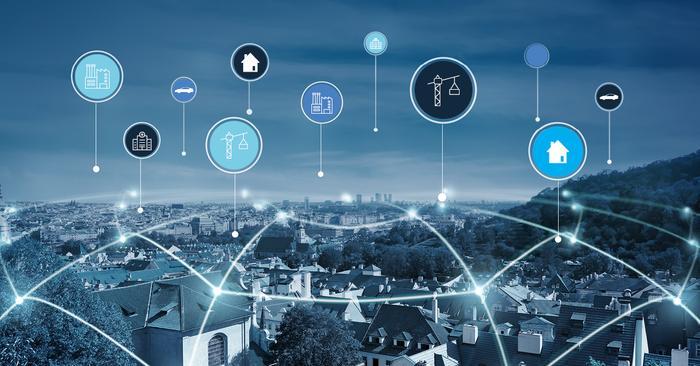The importance of building Geospatial and data science skills

Geospatial and data science skills go hand in hand in helping businesses, governments and organisations relate data to geography. By connecting data with location, we can gain greater insight, leading to better decisions and smarter outcomes. Information is often much more powerful when we understand why things happen where they do. The two skillsets are so complimentary that a new job title is emerging, the Geospatial Data Scientist and the future for those that possess this skillset looks bright.
Our increasingly connected and digital world outputs a phenomenal amount of data every day and this trend is set to continue to grow exponentially. By 2025 it’s estimated that 463 exabytes of data will be created each day; the equivalent in storage of over 212 million DVD’s per day.
Due to the proliferation of devices and data sources the variety and scale of data generation is phenomenal; almost every key asset creates data, whether it be: infrastructure, mobile devices and their associated apps, the internet, connected and autonomous vehicles, smart devices, IoT and social media. And therein lies the rub, with this vast amount of data, the question becomes; is this data useful and if so, how can we organise and gather what’s relevant, make sense of it and maximise it’s utility? How do we go further and enable meaningful insight and realise the productivity and profitability advantages associated with data driven decision making?
This is where the value of the scientific mind shines. Jose Miguel Cansado in his 2017 TEDx talk said the most important skill of the data scientist is the ability to ask the right questions of data to turn it into something meaningful. Knowing how to interrogate data as well as act as responsible custodians of the information are critical skills to ensure accurate and ethically derived outcomes.
With regards to the skills required, abilities in languages such as Python and R, as well as an affinity for technologies such as machine learning, and AI are crucial to the accurate analysis of information at big data scales and complexities. In addition, an understanding and respect for data standards, robust scientific methodologies and the ethics of data use are crucial in ensuring data is handled correctly. Thereby, enabling societies, businesses, organisations, government bodies and individuals to trust their provision of information and have the confidence to act on the outcomes of the analysis.
The importance of the Geospatial element to data science arises in part due to its ability to help us make sense of the patterns and results that emerge from the analysis. This importance is recognised by the UK government, and so one of the Geospatial Commission’s core missions, is to enhance capabilities, skills and awareness. There exists a special relationship between data science and the Geospatial discipline because the physical world is often the common thread which runs through and brings together disparate and varied datasets. After all, everything happens somewhere.
This relationship is further strengthened because the world and its geography are intuitive and universally relatable and provide the necessary context to help us understand, visualise, and contextualise information. In a complex and fast paced world, it is this relatability that often enables decision makers to quickly, accurately, and confidently take action using data driven decision-making techniques.
Charlton Bland MSc MRICS MCInstCES
Charlton works within the Chief Geospatial Office at Ordnance Survey and supports the business with Geospatial insight, strategy, and skills development
You can read more insights from techUK's #GeospatialFuture campaign here!

Laura Foster
Laura is techUK’s Associate Director for Technology and Innovation.








